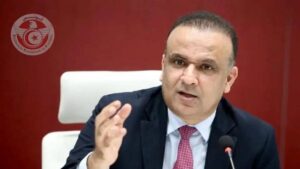Mali : Economic revitalization – National employers’ council makes recommendations
Mali has faced growing difficulties since 2020, including political crisis, economic sanctions, and a concerning security situation. It has become imperative to reinvent an economic model to foster stable and sustainable economic growth.
In this perspective, the National Employers’ Council of Mali has raised concerns about the flexibility of the Malian economy, which currently suffers from several issues. The council has established five different groups that have conducted diagnostic work in key sectors of the economy, including energy, infrastructure, taxation, and financing.
The president of the employers’ council, Mossadeck Bally, presented a report on the economic diagnosis that was conducted, which was then submitted to the transitional President, Colonel Assimi Goïta, this week.
According to the National Employers’ Council, there is a need for energy to attract national and foreign investors while « Mali is in the midst of an energy crisis ». They also emphasize the necessity of developing infrastructure across the country and providing qualified training for youth.
Furthermore, there is a call for a fairer distribution of taxation in Mali to counter fiscal injustice. According to the president of the employers’ council, only 10% of companies pay 90% of taxes, which is regrettable given the current economic situation of the country.
Regarding financing, the council indicates that the banking sector is facing a liquidity crisis because the BCEAO has decided to tighten credit.
One potential avenue to revive the economy of a country could be the valorization of national production. Indeed, in these times of economic recovery and revitalization of the private sector, supporting local products and national industry is essential. This involves the production of goods and services for domestic consumption and the promotion of local industries.
To materialize this vision, it is necessary to support artisans and industrialists, whose contribution to GDP represents a significant portion of added value. To achieve this, bold reforms are necessary to stimulate robust economic growth. Hopefully, the Malian population will show resilience in overcoming all these challenges.






